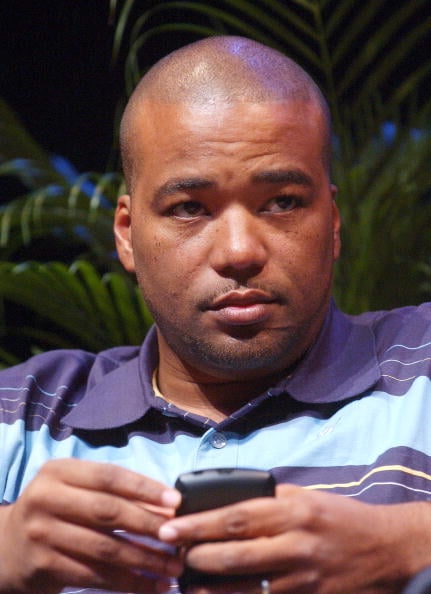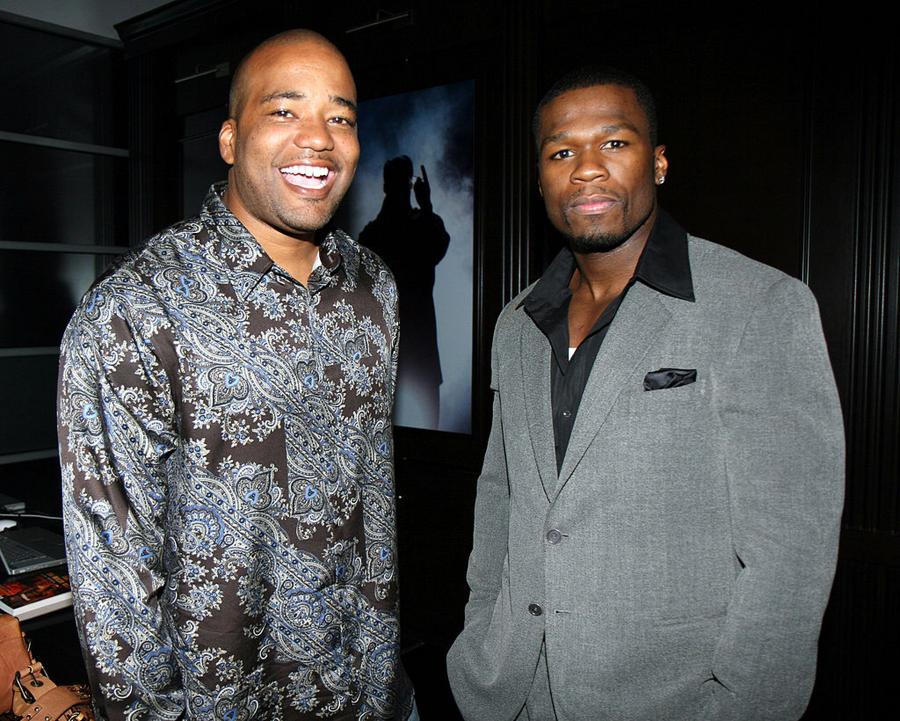What was Chris Lighty's Net Worth?
Chris Lighty was a music talent manager and record producer who had a net worth of $10 million at the time of his death, Chris Lighty co-founded Violator, a management company and record label that has represented many major hip-hop and R&B artists. The company's client roster has included such names as 50 Cent, Papoose, Busta Rhymes, Missy Elliott, LL Cool J, and Q-Tip, among others.
His genius lay in recognizing that hip hop was more than music — it was a lifestyle brand with massive commercial potential. Lighty pioneered the practice of structuring endorsement deals to include equity, setting a new template for artists to become entrepreneurs. Most famously, he orchestrated 50 Cent's groundbreaking Vitamin Water deal, which earned the rapper a reported $100 million. Behind the scenes, Lighty was a savvy negotiator, relentless hustler, and a trusted mentor to the artists he managed. Though his life was tragically cut short in 2012, Lighty's legacy continues to influence the way artists approach business in the entertainment industry.
Financial Problems
At the time of his death in August 2012, Lighty was reportedly facing significant debt. According to various media reports (including information leaked from court documents and law enforcement), Lighty owed approximately $330,000 in back taxes to the IRS. Some sources suggested that the IRS had filed liens against him, though these liens may have been in the process of being settled or contested.
Aside from the IRS, there were rumors that Lighty had accumulated additional debts to business partners or creditors, although these were not publicly detailed in the same way as his tax issues. Some reports alleged he may have been trying to liquidate assets or restructure his finances in the months before his death.
Despite these reported debts, many people close to Lighty — including 50 Cent and Russell Simmons — were skeptical of the suicide ruling, partly because they believed he was financially stable or at least actively working through his challenges. At the time, he still managed a valuable artist roster and was involved in several major deals.
Lighty had also been experiencing marital problems with his wife Veronica at the time of his death. They had reportedly separated and reconciled multiple times. Some reports suggested financial strain was a factor in the tension between them. Veronica initially claimed he had not committed suicide and questioned the ruling, though the medical examiner officially ruled it as such.
Early Life and Education
Born Darrel Steven Lighty in the Bronx in 1968, Chris Lighty grew up in the heart of hip hop's birthplace. He was raised in a tough housing project and earned the nickname "Baby Chris" while running errands for DJs and crews during the genre's early days. His big break came when he joined Rush Artist Management, founded by Def Jam co-founder Russell Simmons. There, he gained firsthand experience in artist development and industry politics.
Career Beginnings
Lighty began his career adjacent to the music industry, carrying vinyl record crates for Kool DJ Red Alert. He later joined Russell Simmons's company Rush Artist Management.

Brad Barket/Getty Images
Violator
In 1996, Lighty co-founded the management company and record label Violator with Mona Scott-Young. He named the company after the gang he once belonged to in the Bronx. Violator went on to become a major name in the hip-hop and R&B music world, managing such clients as 50 Cent, LL Cool J, Busta Rhymes, Missy Elliott, Q-Tip, Nas, Papoose, and many others. In 1999, the company released its first compilation album of material from its artists, entitled "Violator: The Album." The album included the hit single "Vivrant Thing," by Q-Tip. A second compilation album, "Violator: The Album, V2.0," was released in 2001; it included the single "What it Is" by Busta Rhymes and Kelis. Beyond music, Violator also worked on the 2004 action film "Full Clip," starring Busta Rhymes and Xzibit, and the 2005 third-person shooter video game "50 Cent: Bulletproof."
As a music manager and executive, Lighty was called "one of the most powerful figures in the hip-hop business" by the New York Times. He helped LL Cool J land his first Gap commercial in 1997, and also secured lucrative endorsement deals between Diggy Simmons and AT&T, Busta Rhymes and Mountain Dew, and A Tribe Called Quest and Sprite. In 2002, Lighty and Chicago DJ Scrap Dirty formed the Violator Allstar DJs. Later, in 2004, Lighty appeared as himself in the EA video game "Def Jam: Fight for NY." In 2011, he led Violator to form a business partnership with the music publishing and talent management company Primary Wave.

(Photo by Johnny Nunez/WireImage)
The 50 Cent Partnership and Vitamin Water Deal
Chris Lighty's most famous business move came through his management of 50 Cent. After the release of "Get Rich or Die Tryin'," Lighty knew they had a limited window to capitalize on 50's momentum. Rather than focus solely on music, he looked for opportunities with long-term upside.
The turning point came when Lighty arranged for 50 Cent to take a swig of Vitamin Water at the end of a Reebok commercial. That strategic moment caught the attention of Glacéau brand manager Rohan Oza, who invited Lighty and 50 to headquarters in Queens. The result was a groundbreaking deal: a $5 million endorsement fee plus a reported 5% equity stake in the company. When Coca-Cola acquired Glacéau in 2007 for $4.1 billion, 50 Cent's share earned him a rumored $100 million pre-tax payday — ten times what he had made from music.
It was a masterclass in branding and deal-making, and it forever changed how artists approached endorsement partnerships.
Other Endeavors
Among his other endeavors, Lighty had stints working for the record labels Def Jam, Jive, and Loud Records. He was also CEO of the Brand Asset Group. In 2004, Lighty was responsible for what became the largest brand endorsement deal to date, between 50 Cent and Vitamin Water. The deal paid major dividends when Vitamin Water's parent company, Glaceau, was purchased by Coca-Cola for $4.1 billion in 2007.
In 2009, Lighty joined the advisory board of Purista, a maker of premium cocktail mixers. He assisted in the execution of the company's strategic marketing campaigns. A couple of years later, Lighty launched the website pleaselistentomydemo.com, which was intended for fledgling artists to showcase their music to top executives in the music industry, for a small fee to the executives. The site was eventually shut down.
Personal Life and Death
With his wife Veronica, whom he married in 2003, Lighty had a daughter and a son. He had four other children from prior relationships. In 2011, Lighty's wife filed for divorce, but she later allegedly retracted it.
On August 30, 2012, Lighty was found dead on his patio in the Bronx with an apparent self-inflicted gunshot wound to the head. There was a 9mm pistol beside his body at the scene. Many of Lighty's celebrity friends questioned whether the incident was actually a suicide.
/2010/12/chris-lighty.png)
/2012/01/mona-scott.jpg)
/2009/09/Russell-Simmons.jpg)
/2017/02/Spliff-Star.jpg)
:strip_exif()/2009/09/501.jpg)
/2011/02/shakir.jpg)
/2009/09/Brad-Pitt.jpg)
/2019/04/rr.jpg)
/2020/06/taylor.png)
/2020/01/lopez3.jpg)
/2019/11/GettyImages-1094653148.jpg)
:strip_exif()/2015/09/GettyImages-476575299.jpg)
/2009/09/Jennifer-Aniston.jpg)
/2019/10/denzel-washington-1.jpg)
/2018/03/GettyImages-821622848.jpg)
/2020/02/Angelina-Jolie.png)
/2009/11/George-Clooney.jpg)
/2010/12/chris-lighty.png)
/2011/02/shakir.jpg)
/2015/11/cent.jpg)
/2013/06/GettyImages-142962992.jpg)
/2012/01/mona-scott.jpg)
/2014/12/GettyImages-50932558.jpg)
/2009/09/501.jpg)
/2020/05/Yandy-Smith.jpg)
/2009/09/Cristiano-Ronaldo.jpg)